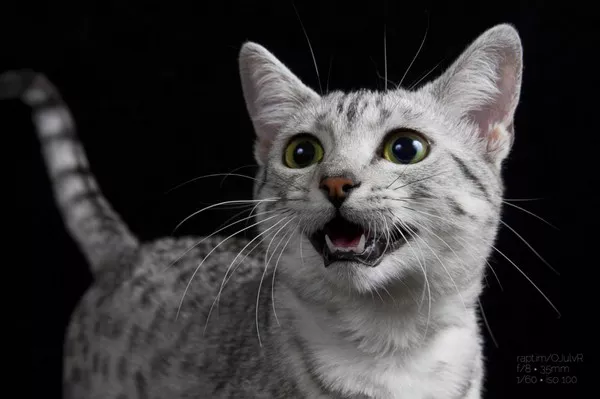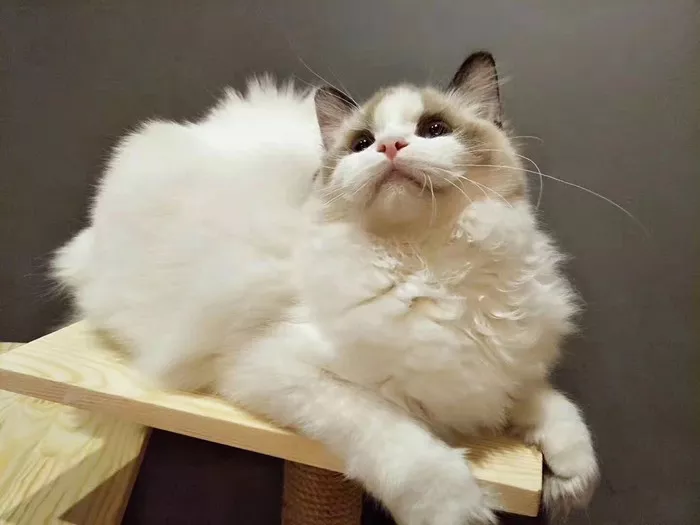In the realm of feline companions, few breeds possess the mystique and allure of the Egyptian Mau. Known for their striking appearance, elegant demeanor, and storied history, Egyptian Maus have captured the fascination of cat lovers around the world. But beneath their regal exterior lies a curious question: Are Egyptian Maus vocal? In this article, we embark on a journey to uncover the vocalizations of Egyptian Maus, exploring their unique communication styles, the meanings behind their sounds, and the factors that influence their vocal behavior.
A Glimpse into History: The Legacy of the Egyptian Mau
Before delving into the vocalizations of Egyptian Maus, it’s essential to understand the breed’s rich history and cultural significance. Egyptian Maus are one of the oldest known cat breeds, with origins dating back to ancient Egypt, where they were revered as sacred symbols of grace, beauty, and divine protection.
Depicted in ancient Egyptian artwork and artifacts, Egyptian Maus were often depicted alongside pharaohs and revered as symbols of royalty and prosperity. Their distinctive spotted coat, sleek physique, and graceful movements captivated the imaginations of ancient Egyptians and earned them a place of honor in their society.
Despite their ancient origins, Egyptian Maus were nearly driven to extinction in the modern era until they were reintroduced to the Western world in the mid-20th century. Since then, Egyptian Maus have gained popularity as beloved pets and show cats, captivating admirers with their exotic appearance and enchanting personalities.
Decoding Feline Communication: Understanding Cat Vocalizations
Before exploring the vocalizations of Egyptian Maus, it’s helpful to understand the basics of feline communication. Like all cats, Egyptian Maus use a variety of vocalizations to express their emotions, convey their needs, and communicate with their human companions.
Common cat vocalizations include meowing, purring, chirping, trilling, yowling, and hissing, each of which serves a unique purpose and carries its own meaning. Meowing, for example, is often used by cats to solicit attention, express hunger, or greet their human companions, while purring is typically associated with contentment, relaxation, or as a self-soothing mechanism.
Understanding the nuances of feline vocalizations can help cat owners interpret their pets’ behavior and respond appropriately to their needs, whether it’s providing food, offering comfort, or engaging in interactive play.
The Sound of Silence: Egyptian Maus and Their Vocal Habits
When it comes to vocalizations, Egyptian Maus are known for their relatively quiet and reserved demeanor compared to other breeds. While they are capable of producing a range of sounds, including meows, chirps, and trills, Egyptian Maus are generally less vocal than some other breeds and tend to be more selective in their use of vocalizations.
However, this doesn’t mean that Egyptian Maus are completely silent. Like all cats, Egyptian Maus use vocalizations to communicate with their human companions and express their needs, desires, and emotions. They may meow to solicit attention, chirp to express excitement or curiosity, or trill to greet their owners.
It’s important for cat owners to pay attention to their Egyptian Maus’ vocalizations and body language to understand their needs and respond accordingly. While Egyptian Maus may not be as vocal as some other breeds, they are still capable of communicating effectively with their human companions through a combination of vocalizations, body language, and facial expressions.
Factors Influencing Vocal Behavior: Understanding the Individual
While Egyptian Maus may share certain vocal traits as a breed, it’s important to recognize that individual cats may have their own unique vocal preferences and habits. Factors such as genetics, personality, upbringing, and environment can all influence a cat’s vocal behavior and communication style.
Some Egyptian Maus may be naturally more vocal and expressive than others, while others may be quieter and more reserved. Similarly, cats that are raised in environments where they receive plenty of attention, socialization, and positive reinforcement may be more inclined to vocalize to communicate with their human companions.
Additionally, changes in a cat’s environment or routine, such as moving to a new home, experiencing a change in diet, or encountering unfamiliar people or animals, can also affect their vocal behavior. Cat owners should be attuned to their Egyptian Maus’ vocalizations and behavior and provide them with the support and attention they need to feel safe, secure, and comfortable in their surroundings.
Interpreting Vocalizations: Deciphering the Message
When it comes to interpreting the vocalizations of Egyptian Maus, cat owners should pay attention to the context in which the sounds are made and the accompanying body language and behavior. Meowing, for example, may indicate hunger, loneliness, or a desire for attention, while chirping or trilling may express excitement, curiosity, or anticipation.
It’s important for cat owners to respond to their Egyptian Maus’ vocalizations with patience, understanding, and empathy. By acknowledging and addressing their cats’ needs and desires, cat owners can strengthen their bond with their Egyptian Maus and foster a deeper understanding of their unique personalities and communication styles.
The Bond Between Human and Feline: Nurturing the Connection
In conclusion, Egyptian Maus may not be the most vocal of cat breeds, but they are still capable of communicating effectively with their human companions through a combination of vocalizations, body language, and facial expressions. Understanding the nuances of their vocalizations and responding to their needs with patience and empathy can help strengthen the bond between human and feline and enrich the lives of both parties.
Whether chirping with excitement, trilling with anticipation, or meowing for attention, Egyptian Maus have a unique way of expressing themselves that reflects their individual personalities and preferences. By listening to their vocalizations and paying attention to their behavior, cat owners can deepen their understanding of their Egyptian Maus and nurture a loving and fulfilling relationship built on trust, communication, and mutual respect.

























